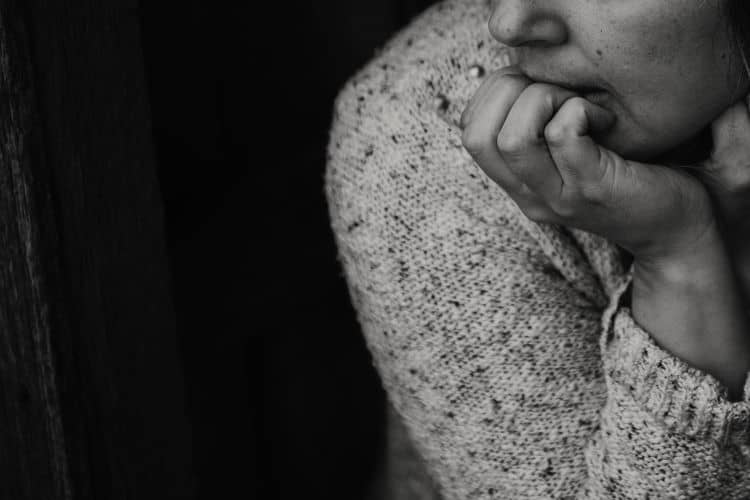Emotions can run high after the birth of a child, especially when it’s your first experience with parenthood. It’s perfectly normal to feel stress surrounding your child and their safety. After all, we only want the best for our children.
But if your worries become excessive or irrational, you may be suffering from postpartum anxiety. Postpartum anxiety is as common as postpartum depression, but the condition isn’t as widely discussed. If you think you are experiencing postpartum anxiety, here’s what you need to know.
Postpartum Anxiety Symptoms
Similar to generalized anxiety disorder, postpartum anxiety can be described as ongoing excessive, irrational or exaggerated fear or worry that something is wrong. But postpartum anxiety is linked specifically to giving birth and becoming a parent.
Worrying about your child is a normal instinct that comes with parenthood. However, if you experience any of the following postpartum anxiety symptoms & signs, your worries may be an indicator that you have it:
- Constant worry that is difficult to ease
- Constant thoughts about things you fear will happen
- Sleep disruption (sleep disruption is a given for any new parent, but if you find yourself waking up at night or having difficulty falling asleep when your baby is sleeping peacefully, it may be due to anxiety)
- Circular, racing thoughts
- Difficulty concentrating
Postpartum anxiety can also cause many physical symptoms, including:
- Fatigue
- Heart palpitations or racing heart
- Hyperventilation
- Sweating
- Nausea or vomiting
- Shakiness or trembling
Postpartum anxiety also includes conditions like postpartum panic disorder and postpartum obsessive-compulsive disorder (OCD).
Postpartum OCD symptoms match those of non-postpartum OCD but relate specifically to being a new parent. With postpartum OCD, you may experience obsessive thoughts about harm or death happening to your child.
Postpartum panic disorder can cause panic attacks when you are plagued with similar thoughts to those above.
Signs of a postpartum panic attack include:
- Shortness of breath, a choking sensation or feeling unable to breathe
- Intense feelings that something is wrong, even though there is no imminent threat to you or your baby
- Irrational fear of death befalling you or your baby
- Chest tightness and pain
- Dizziness
- Racing heartbeat
As with most anxiety conditions, it’s unclear exactly what causes postpartum anxiety. A number of factors believed to be related to the condition include:
- Changes in hormones post birth
- Sleep deprivation
- Stress related to caring for a new baby
- Relationship changes that can happen after the birth of the baby
- Societal pressures for new parents to “perfect”
- Naturally sensitive or easily worried nature
- Personal or family history of anxiety, panic attacks & mood disorders
- Having a premature baby or a baby with health issues
- Trauma from a previous miscarriage or stillbirth

How Long Does Postpartum Anxiety Last?
There’s no single answer as to how long postpartum anxiety lasts. The most important thing to know is that it’s not permanent and treatment options are available. Postpartum anxiety doesn’t always disappear on its own & untreated moderated to severe postpartum anxiety can last indefinitely.
Recovery time depends on how soon you get treatment and the severity of the condition. It’s vital to seek help if anxiety is keeping you awake at night or you feel constantly worried.
Postpartum Anxiety Treatment
If you’re suffering from postpartum anxiety, the best thing you can do is to reach out for help. Consulting your doctor or talking to a friend or family member can help alleviate some of the stress you are feeling.
Postpartum anxiety symptoms tend to be more intense than the general worry that accompanies becoming a new parent. If your worries seem extreme or are not based on a real problem or threat, you may want to seek treatment for postpartum anxiety.
If you’re feeling unusually overwhelmed, anxious, panicked or like you’re losing control after having a baby, call your doctor to discuss your symptoms. If you exhibit any symptoms of postpartum depression, anxiety, OCD or PTSD, it’s helpful to speak with your OB/GYN or your child’s pediatrician.
A healthcare practitioner can help you understand your symptoms, and if needed, they can refer you to a mental health care professional with experience treating new parents with postpartum anxiety.
Depending on the severity of your anxiety, your practitioner may recommend talk or cognitive therapy. Techniques like meditation, mindfulness training & relaxation exercises may also be beneficial. Moderate to severe postpartum anxiety is often treated with a combination of therapy and medication, most commonly antidepressants & anti-anxiety drugs known as SSRIs.
If you are experiencing postpartum anxiety, it’s crucial not to suffer alone. With the help of supportive friends and family members and treatment from your mental healthcare practitioner, you can get back to enjoying your life as a new parent.



